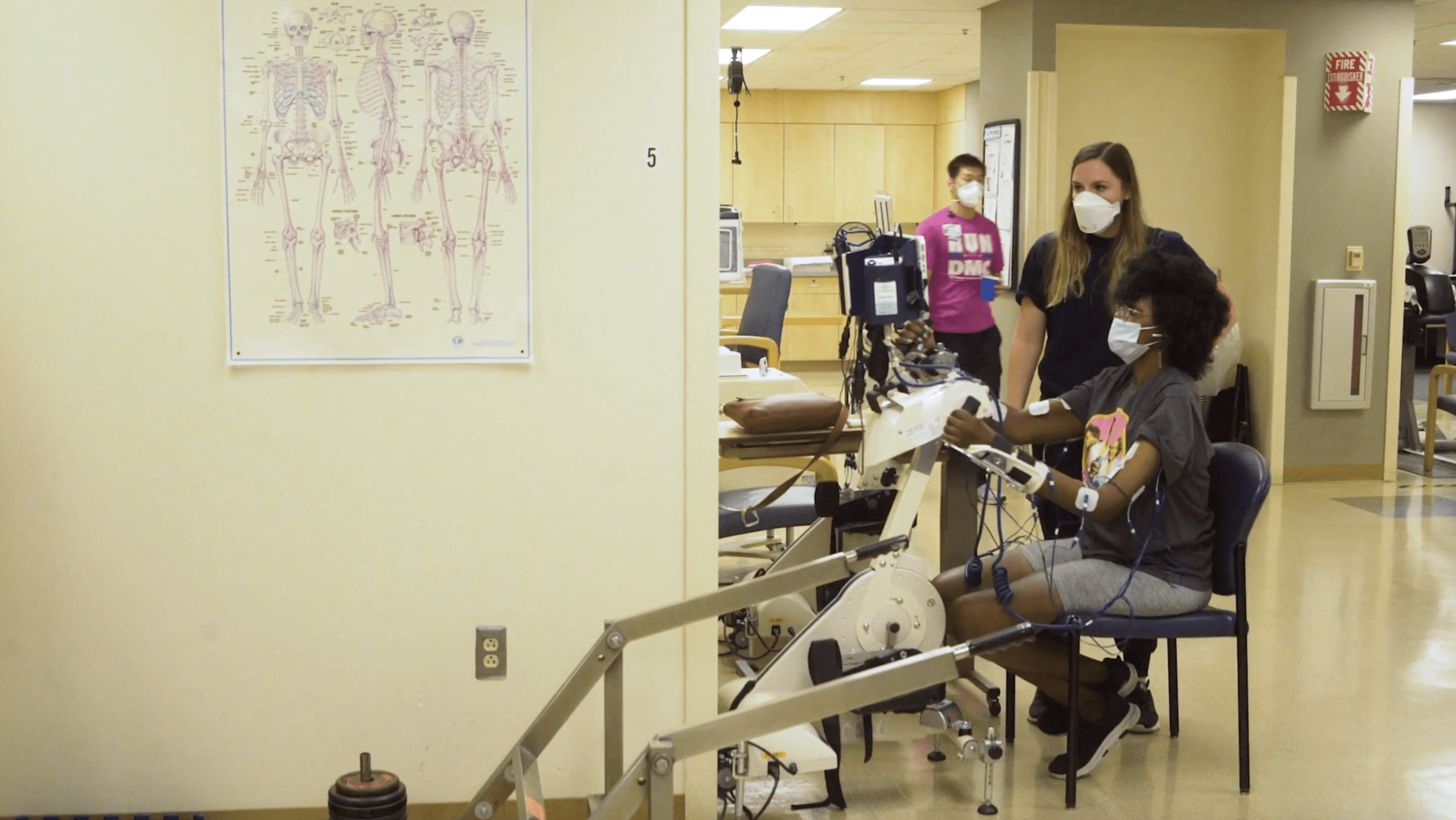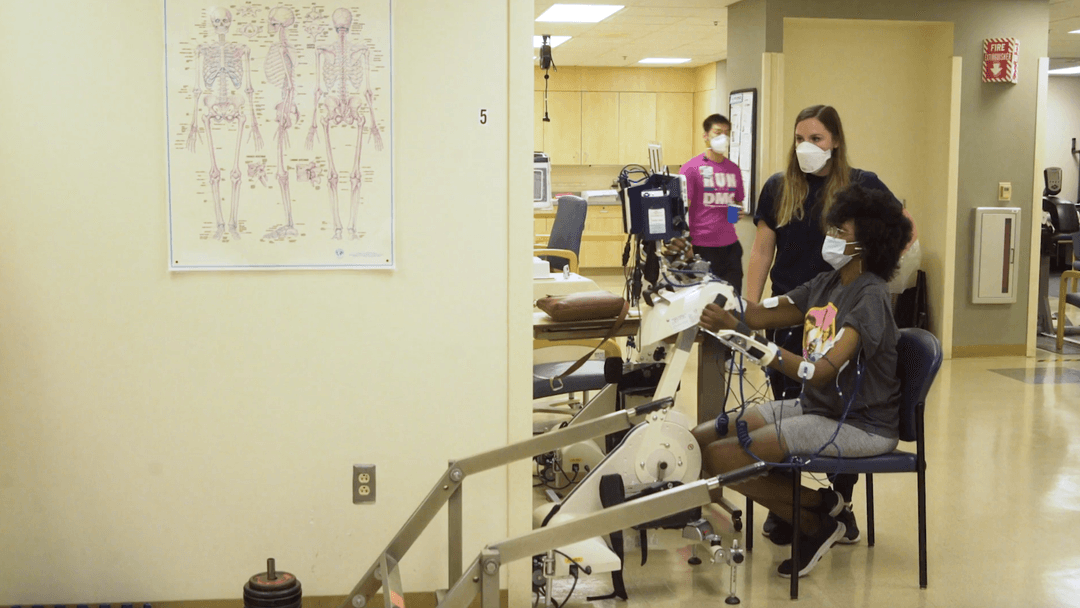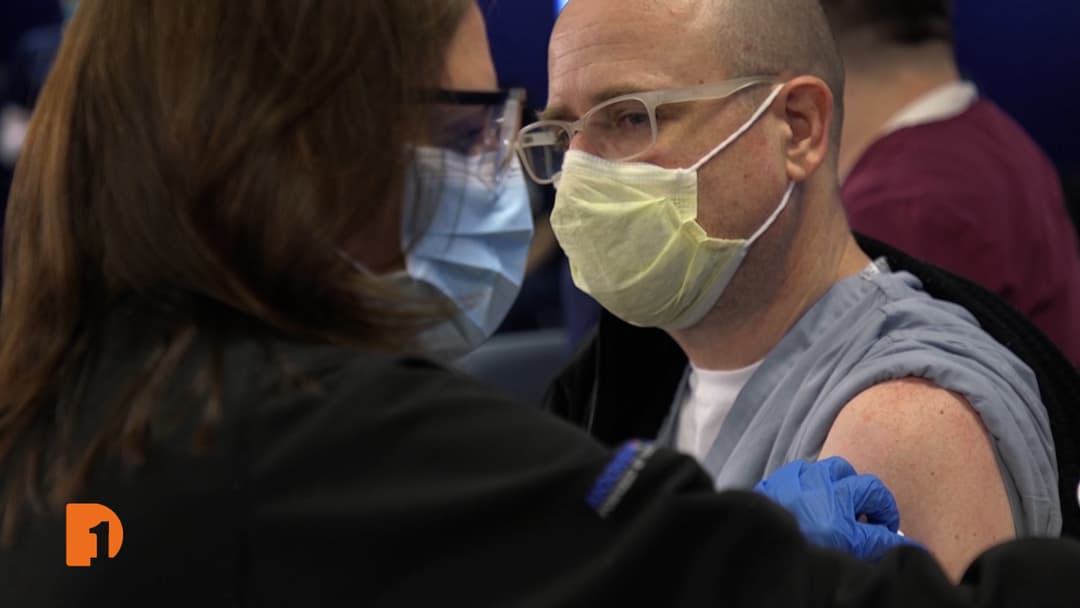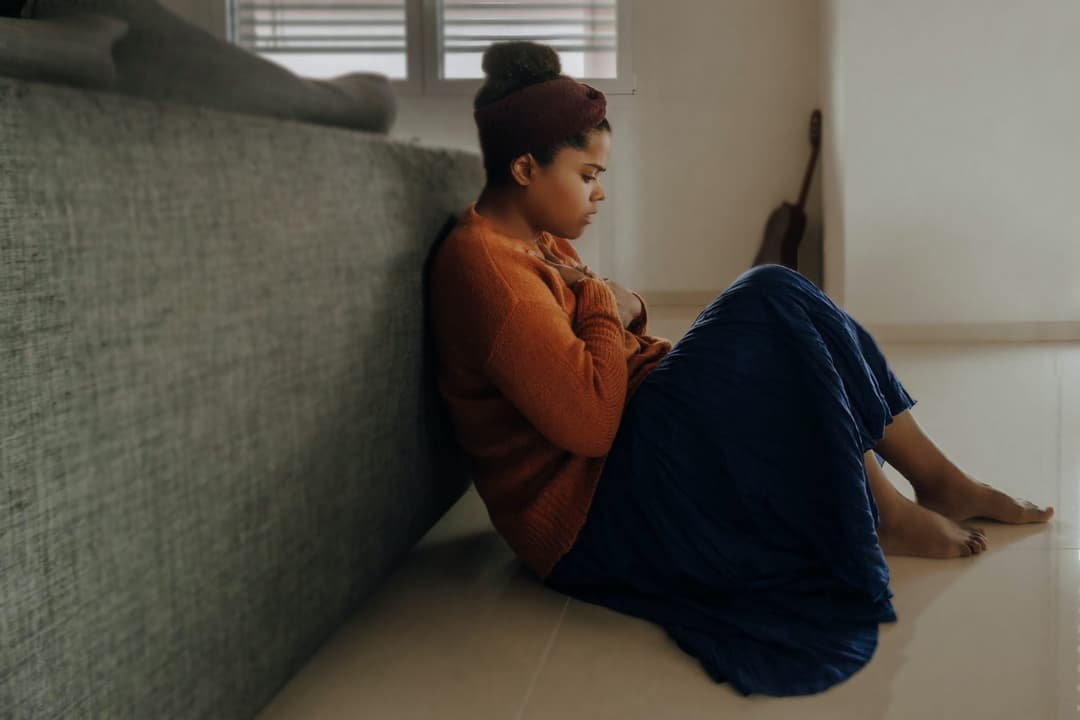
COVID Long-Haulers: The People Still Suffering from the Virus
Jan 13, 2022
Originally Aired on October 13, 2021
As the United States and Michigan continue to face some of the highest COVID-19 with the Omicron variant since the start of the pandemic, the long-term effects of the virus for many who have already contracted it is still relatively unknown. More than two years into the pandemic, millions of people — COVID Long-Haulers — continue to deal with lingering symptoms months after first contracting the virus. Medical research on the topic is ongoing, but what have they discovered so far and what’s still to learn?
One Detroit’s Bill Kubota connects with experts from Henry Ford Health System, The University of Michigan Medicine team, and the Detroit Medical Center, along with patients still trying to shake the illness themselves, about the ways people’s bodies are still being ailed by COVID in the long-term.
[et_pb_video src=”https://www.youtube.com/watch?v=FloOe3cqtcU” _builder_version=”4.14.5″ _module_preset=”default” global_colors_info=”{}”]
Full transcript:
| LONG COVID –THE AFFLICTION SUFFERED BY THOSE WHO’VE PULLED THROUGH THE INITIAL INFECTION – ESTIMATED TO BE ONE OF EVERY THREE OR FOUR SICKENED BY THE VIRUS. |
|
Dr. Eva Feldman, Neurology Professor, Univ. of Michigan Medicine: We’ve had multi-millions of cases of COVID in this country. I mean let’s do the math, when 20 percent of those individuals – we’re talking about millions of individuals who have long COVID, those individuals are really impaired. |
|
Kennedy Robinson, Long Covid Patient: I was a healthy young woman, had no troubles whatsoever and this happened all of a sudden. |
|
Anjli Lodhavia, Speech Language Pathologist, Henry Ford Health System: You’ve got people with anxiety and depression and different mood disorders because of what has just happened in their life. |
|
Carolyn Brierley, Physical Therapist, Detroit Medical Center: We don’t have two people that are, that have the same exact symptoms, and everyone’s recovering in a much different recovery rate as well. |
|
Dr. Eva Feldman: The minute I see someone and I don’t immediately know what they have, it’s a strange symptom, I’ll think this is probably another case of COVID and it most always is. |
|
THE NATIONAL INSTITUTES OF HEALTH SAID LAST MONTH IT’S MAKING A POPULATION STUDY OF LONG COVID CASES NATIONWIDE. THE WEBSITE SAYS ‘PROGRESS TAKES PEOPLE LIKE YOU. LEARNING COMES FROM LISTENING.’ |
|
Dr. Eva Feldman: The most common things we see are generalized fatigue, brain fog, not being able to return to work, not being able to complete the activities of daily living. What we find is that they can have fluctuation or changes in their blood pressure. |
| DOCTOR EVA FELDMAN, A NEUROLOGY PROFESSOR AT UNIVERSITY OF MICHIGAN MEDICINE – SHE’S FOUND MUCH OF THE BODY’S NERVOUS SYSTEM CAN BE AFFECTED BY THE VIRUS. |
|
Dr. Eva Feldman: It’s such an interesting virus. It’s like a chameleon. It can do almost anything. |
| IN ANN ARBOR, THEY’RE CHECKING LONG COVID BLOOD SAMPLES FOR MARKERS INDICATING INFLAMMATION, ALONG WITH THE EXAMINATION OF VITAL ORGANS. |
| HENRY FORD HEALTH SYSTEM SPEECH LANGUAGE PATHOLOGIST ANJLI LODHAVIA’S WORKING WITH LONG COVID PATIENT JACKIE O’CONNELL WHO’S STRUGGLING WITH MEMORY ISSUES. |
|
Jackie (on videocall): When I have everything set out, it’s there and I do it, but when it’s something I actually have to think about, that’s when I… Anjli Lodhavia (on videocall): It’s almost like your brain shuts down. Jackie (on videocall): Yeah. |
| O’CONNELL GOT COVID THIS JANUARY. SHE LOST HER TASTE AND SMELL, BUT NO CONGESTION. SHE’D BEEN A CASE MANAGER FOR A HEALTHCARE PROVIDER, BUT SHE’S NOT WORKING NOW. |
| Anjli Lodhavia (on videocall): Today, I’m going to introduce you to some acronyms, and walk you through different memory strategies that you can use… |
| Anjli Lodhavia: With Jackie, she stayed at home for two weeks, returned to her job and realized ‘whoa, like I’m I can’t do this, I can’t even look at the computer screen without freaking out.’ |
|
Anjli Lodhavia (on videocall): What did that stand for? Jackie (on videocall): I don’t remember. Anjli Lodhavia (on videocall): Take a second. Even if you’re like I have no idea I’m drawing a blank, take a second, think about what we just talked about for the last 20 minutes. What things are you going to do to help yourself remember? |
| Anjli Lodhavia: I think the surprising thing for me is that all of the patients I’m seeing with brain fog were not hospitalized, and they had mild cases. |
|
LODHAVIA’S BEEN WORKING WITH PEOPLE RECOVERING FROM STROKES, BRAIN INJURIES, ALZHEIMERS – THAT SORT OF THING. ADD LONG COVID TO THE LIST. |
| Anjli Lodhavia: It just makes sense to have them go through this cognitive rehab program that we’ve been doing for other patients before COVID to help treat some of these long-haul patients. |
|
Jackie (on videocall): Like I even have to do a resume for the disability and like it didn’t make sense, it all threw me. Anjli Lodhavia (on videocall): Was it more helpful when you went through it with your sister? Jackie (on videocall): Yeah, I’m going back over this evening, and she’s filling out all the papers with me. |
| Anjli Lodhavia: They’re not able to remember some of the conversations that they’re having, you know if you look at these people and you run into them on the street, you don’t see any physical impairment from COVID. |
| Dr. Eva Feldman: We as physicians can help them symptomatically, we’re doing like diet, exercise, occupational-physical therapy but we don’t have any magic pill or cure for this, so it’s affecting a lot of people. |
| PHYSICAL THERAPIST CAROLYN BRIERLY’S WITH THE DETROIT MEDICAL CENTER’S REHABILITATION INSTITUTE OF MICHIGAN – SHE, TOO, HAS BEEN SEEING A LOT OF LONG HAULERS. |
|
Carolyn Brierley, Physical Therapist, Detroit Medical Center: You know we knew nothing about how to treat this prior to this hitting and now its going to be a constant learning on what we can and cannot do, what’s best practice for our patients. |
|
Kennedy Robinson, Long Covid Patient: So I got COVID in the beginning of May. I luckily enough had mild case of it, so it’s kind of like a bad cold essentially. |
| DETROITER KENNEDY ROBINSON, AGE 23 – GETTING READY TO GRADUATE FROM COLLEGE – AND GETTING PHYSICAL THERAPY THREE TIMES A WEEK AT THE REHABILITATION INSTITUTE OF MICHIGAN. |
| Kennedy Robinson: I have never felt so tired in my arms ever. You don’t really realize how much of your muscles you use until they’re taken away from you. |
| Carolyn Brierley: For some of our long haulers we’re seeing them in physical therapy for sometimes four to six months because they’re so de-conditioned when they come to us that we now have to build that back up. We have to build muscle strength, we have to build coordination and we have to teach them how to breathe properly again. |
| Dr. Eva Feldman: So in Kennedy’s case what’s occurred—it’s affected what are known as her peripheral nerves well it’s likely possibly her muscles. |
| Kennedy Robinson: I couldn’t do like basic things such as dressing myself feeding myself… |
| ROBINSON HAD NO COGNITIVE ISSUES TO REPORT. IT WAS NERVES TO HER LEGS AND, MORESO, HER ARMS. |
| Kennedy Robinson (her video): As you can clearly see, I struggle with getting my hands up literally, like watch. |
| Kennedy Robinson They did lots of blood tests, did MRI scans and CT scans and everything came up negative, everything came up clear, like nothing was wrong with me. |
| Every time I would do things for them, they would look at me like I was, like I was faking it. |
|
NOT AN UNCOMMON EXPERIENCE FOR SOME LONG HAULERS, ROBINSON FOUND ANOTHER OPINION FROM DR. FELDMAN AT MICHIGAN MEDICINE. A DIAGNOSIS – JUST PART OF THE CHALLENGE – PAYING FOR IT CAN BE A PROBLEM TOO. |
| Anjli Lodhavia: I have patients who filed for disability and they’re not getting approved for it because ‘no, they’re able to wake up in the morning and make their cup of coffee and drive to the doctor’ – those things are fine, but when it comes to doing their cognitively taxing job, they are not able to do that. |
|
Anjli Lodhavia (on videocall): Are you making lists? Jackie: No, I honestly haven’t been |
| Anjli Lodhavia: We just don’t know what’s happening whether this is partly psychosomatic, this is actually something going on in the brain, whether it’s a component of both, which is probably the likely case. I think we all just want to know more about it and look at the patterns across patients to try and figure out the best ways to treat them. |
| Kennedy Robinson: Now I’ve progressed a lot comparing to how I was back in June where I could only lift about maybe up to here, now I can go all the way up to here. |
| My boyfriend has asked multiple times about how long this would last and I always tell him I honestly don’t know it really depends… honestly recovery time would be could be up from either six months to almost three years. |
| Dr. Eva Feldman: So as we began to better understand that this was a real syndrome really happening after COVID, that’s happening in parallel with the patients really forming support groups and beginning to collect their own data so we can understand the symptoms that are occurring. |
|
PATIENTS CONFERRING WITH EACH OTHER ONLINE. DETROIT AREA PHYSICAL THERAPIST TED DECHANE GOT COVID EARLY ON – MARCH LAST YEAR. HIS INITIAL SICKNESS PASSED – THEN CAME A PERSISTANT FATIGUE. |
|
Ted DeChane, Physical Therapist Recovering from Long Covid: It wasn’t until I connected with a few other therapists on Twitter who were experiencing the same thing we kind of realized that this was more than just you know our acute COVID infection. We were having something that was continuing beyond those two weeks we thought we were better in. |
| DECHANE’S ONLINE CONNECTIONS LED TO HIS SUPPORT GROUP LONG COVID PHYSIO – ALMOST 200 MEMBERS NOW, ALL PHYSICAL THERAPISTS AROUND THE WORLD WITH LONG COVID TALKING ABOUT THINGS HERE THAT TURN UP IN THE MEDIA MONTHS LATER. |
|
Bill Kubota (on Zoom): What did you learn from some of these online conversations that maybe is even ahead of the curve with some of the medical establishment? Ted DeChane: Yeah, we were really fortunate to kind of connect with some people who had suffered from post-viral illnesses prior to COVID-19. You know we’ve seen these kind of similar things happen after Epstein Barr infections, after the first SARS virus in Toronto, after Ebola, so we’ve connected with a lot of people early on who are already experiencing those kind of post-viral illnesses and used what they knew worked to kind of help our treatment. |
| DECHANE’S GROUP FINDS A PHYSICAL REHAB REGIMEN NOT SO USEFUL IN MANY CASES – CASES LIKE HIS – FINDING IT’S A MATTER OF RESTING A LOT MORE – A YEAR AND A HALF LATER HE’S AT ABOUT 85 PERCENT STRENGTH OF WHERE HE WAS BEFORE HE GOT THE BUG. |
| Ted DeChane: I just don’t know if the government is monitoring the amount of burden this is placing on our society as a whole and if the U.S. knew the burden that this could cause, they might be doing a little better job about trying to get a handle on it. |
|
THE ECONOMIC DAMAGE FROM LONG COVID SO FAR – HARD TO SAY. THE N.I.H. HAS ABOUT A HALF-BILLION DOLLARS TO DO THEIR POPULATION STUDY – ADD THAT TO MORE THAN A BILLION DOLLARS FOR OTHER STUDIES OVER THE NEXT FOUR YEARS. |
| Dr. Eva Feldman: It’s clear that not everyone gets over post-COVID syndrome at least not that we’re seeing yet but again, the disease is new, right? This is all very new and young. |
| Kennedy Robinson: There are going to be other people that are coming in with the exact same problem that I’m having and again they’re probably going ‘oh well this is new we don’t know what’s going on’ and actually yes you do because I am that person that was dealing with the exact same thing, essentially like learn from me. |
Subscribe to One Detroit’s YouTube Channel & Don’t miss One Detroit Mondays and Thursdays at 7:30 p.m. on Detroit PBS, WTVS-Channel 56.
Catch the daily conversations on our website, Facebook, Twitter @DPTVOneDetroit, and Instagram @One.Detroit
View Past Episodes >
Watch One Detroit every Monday and Thursday at 7:30 p.m. ET on Detroit Public TV on Detroit Public TV, WTVS-Channel 56.
Stay Connected
Subscribe to One Detroit’s YouTube Channel and don’t miss One Detroit on Thursdays at 7:30 p.m. and Sundays at 9 a.m. on Detroit PBS, WTVS-Channel 56.
Catch the daily conversations on our website, Facebook, Twitter @OneDetroit_PBS, and Instagram @One.Detroit
Related Posts
Leave a Reply
Your email address will not be published. Required fields are marked*





























